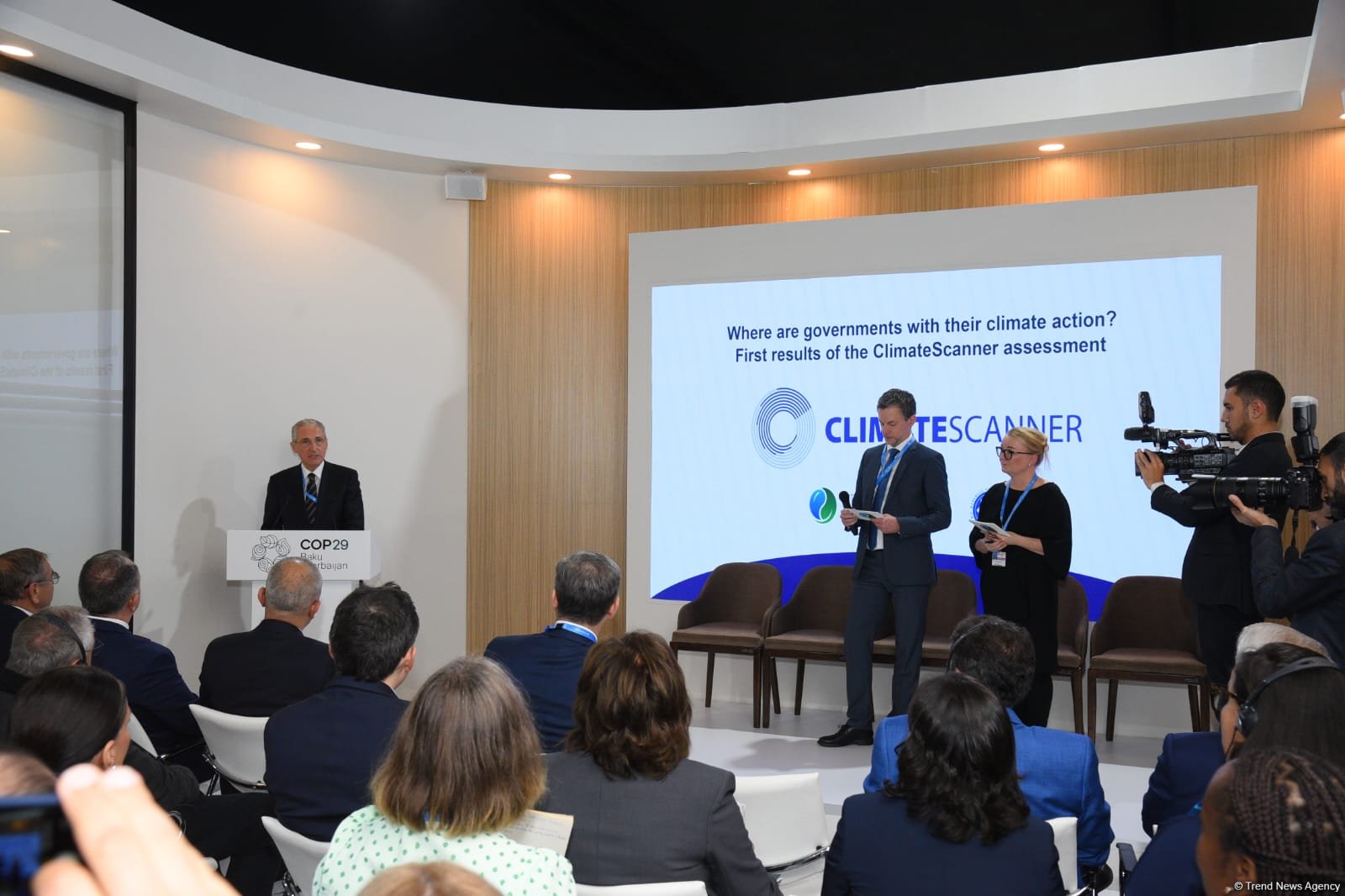BAKU, Azerbaijan, November 14. Based on preliminary results from the climate scanner assessment presented by the supreme audit institution of Brazil, the report highlights that in most countries, government policies related to national commitments, mitigation strategies, and adaptation plans are generally satisfactory, Trend reports.
These policies encompass governmental measures including governance, legislation, administrative frameworks, and risk management.
This was announced today at an event presenting the results of the climate scanner assessment, organized by the Chamber of Accounts of the Republic of Azerbaijan and the International Organization of Supreme Audit Institutions (INTOSAI) as part of the 29th session of the Conference of the Parties to the UN Framework Convention on Climate Change (COP29).
The discussions highlighted the urgent need to strengthen existing mechanisms and enhance ongoing efforts in the financial sector, particularly in the areas of domestic, international, and private climate financing.
The 29th session of the Conference of the Parties to the UN Framework Convention on Climate Change (COP29), which will run until November 22, opened at the Baku Olympic Stadium on November 11.
The UN Framework Convention on Climate Change is an agreement signed at the Rio Earth Summit in June 1992 to prevent dangerous human interference in the climate system. The acronym COP (Conference of Parties) stands for “Conference of Parties” and is the highest legislative body overseeing the implementation of the Framework Convention on Climate Change.
A total of 198 countries are parties to the Convention. Unless otherwise decided by the parties, COP is held annually. The first COP event was held in March 1995 in Berlin, and its secretariat is located in Bonn.
Stay up-to-date with more news on Trend News Agency's WhatsApp channel







